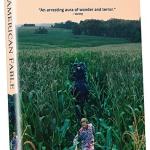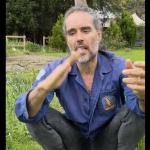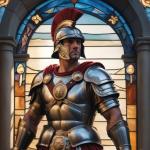2023 was a great year for books. Admittedly the book I spent the most time with was my own book-in-progress. Thanks to the generosity of the Louisville Institute Sabbatical Grant for Researchers and Baylor University, I have been able to spend this past year working on a manuscript on how Protestant women navigated the Protestant fundamentalist-modernist controversy of the early twentieth century. This hundred-year-old split between theological and social conservatives and liberals contributed to the modern American culture wars, both inside and outside church walls Women have historically constituted two-thirds of the church, but the story historically told about the controversy focuses almost exclusively on men. I’m excited to share more about this project over the coming months.
But writing is communal, so I didn’t only focus on my own book project. Not only do authors rely on the scholarship that’s come before and the keen editing insights of colleagues, but we are also inspired by the work of other writers. I’ve been a better writer this year for getting to enjoy a number of other books. I’ve had the opportunity to highlight several on them on the Anxious Bench, and I also include here bonus books from this past year as well as several I’m looking forward to next year.
This will surprise no one, but the books I read turned out to cluster into history, biography, and theology. So pick your favorite genre below, and hopefully you’ll find a great new read to ring in the new year!
HISTORY
In my first post of the year, I had the opportunity to interview Paul Gutacker on his book The Old Faith in the New Nation: American Protestants and the Christian Past. I also enjoyed reviewing Peggy Bendroth’s new book Good and Mad: Mainline Protestant Churchwomen, 1920-1980 for The Journal of Presbyterian History.
BIOGRAPHY
I likewise had the opportunity to interview Nancy Koester on her biography of Black abolitionist and feminist Sojourner Truth and to interview Lucy S. R. Austen on her biography of missionary and theologian Elisabeth Elliot. I also had the great privilege of reviewing All My Knotted-Up Life, the autobiography of Southern Baptist-turned-Anglican women’s Bible teacher Beth Moore.
THEOLOGY
I also really enjoyed the opportunity to review Abigail Favale’s Genesis of Gender: A Christian Theory. Favale’s book contributes to the project of developing a more robust theory of gender difference egalitarianism, which I believe would greatly benefit the church. I then also got to interview Karen Swallow Prior on her new book The Evangelical Imagination: How Stories, Images, and Metaphors Created a Culture in Crisis, which, perhaps true to form for my taste, is not only theology, but also history and cultural studies.
I also read some good books in this category solely for personal enrichment. Because I’ve been privileged to be on research leave, I sought out Ruth Haley Barton’s Embracing Rhythms of Work and Rest: From Sabbath to Sabbatical and Back Again. She writes a theology of Sabbath in general, and, in an unusual move, dedicates the second half of the book to Sabbatical in particular. Her focus is true sabbaticals (when, unlike a research leave, there’s no “deliverable”) for people in ministry. But a lot of the wisdom for navigating such a reset time of rest is applicable to academics on research leave…or even just over the summer. The first half, on weekly Sabbath, is of use to everyone.
I also participate in a really nerdy adult Sunday School—I mean catechesis—class. We have been discussing Christian virtue formation with the help of books by two thoughtful authors on the topic: theologian and New Testament scholar N. T. Wright’s After You Believe: Why Christian Character Matters and philosopher Robert C. Robert’s Spiritual Emotions: A Psychology of Christian Virtues.
Finally, I was amused to notice that my top three “to read” books as I start 2024 fall into my three categories of history, biography, and theology. If you read them along with me, I’d love to hear your thoughts:
HISTORY: Nadya Williams’s Cultural Christians in the Early Church: A Historical and Practical Introduction to Christians in the Greco-Roman World. I have learned so much from Anxious Bench historians of not-the-United-States like Williams. This book promises to help me better understand both the New Testament and the Early Church Mothers and Fathers.
(AUTO)BIOGRAPHY: Esau McCaulley’s How Far to the Promised Land: One Black Family’s Story of Hope and Survival in the American South. I have appreciated McCaulley’s writing for many years (and known him since we both graduated Gordon-Conwell Theological Seminary in 2005!). I look forward to reading his most recent offering.
THEOLOGY: Fellipe do Vale’s Gender as Love: A Theological Account of Human Identity, Embodied Desire, and Our Social Worlds. This book also looks like it will provide resources for developing a more robust gender difference egalitarian theology, and I look forward to reading it!
If you particularly loved a book you read in 2023, I’d love to hear your recommendation in the comments!
















